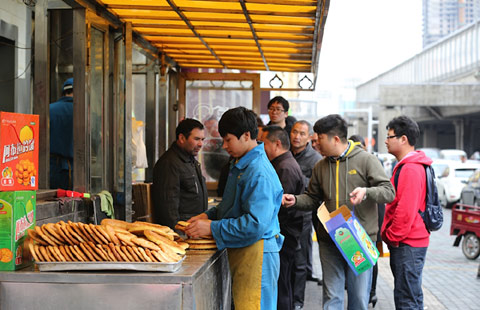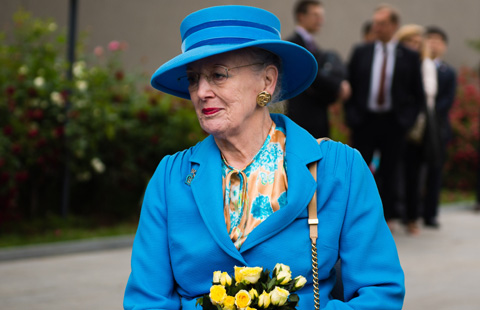Obama urges Japan to recognise past honestly
Updated: 2014-04-28 15:58
(www.asianewsnet.net)
|
|||||||||||
In Tokyo, Obama also made Abe happy by welcoming and supporting his move to lift Japan’s self-imposed ban on exercising the right of collective self-defence.
Abe says Japan needs to regain the right of collective self-defence to ensure that the Japan-US alliance functions more effectively. He says the ban makes it impossible for Japan to come to the aid of the US when it is under an armed attack by a third country.
But his push for collective self-defence is intended to make Japan a military powerhouse. Abe has already taken measures to beef up Japan’s Self-Defence Forces.
Abe says Japan needs a stronger military to be able to contribute to global peace more proactively. But this justification sounds hollow, as his hard-line security policy and revisionist historical perspective have in fact alienated Japan from the rest of the world.
Washington backs Japan’s military buildup as it will help counterbalance China’s rapid military expansion. However, Abe’s push for a militarily stronger Japan is cause for grave concern among countries that were victimised by its militarism in the past.
Abe has raised the specter of a militaristic Japan by denying Japan’s invasion of Asian countries during World War II and questioning the legitimacy of the Japanese government’s official apologies for wartime atrocities.
Washington should not overlook this concern among Asian countries if it seeks to play a leadership role in this region. In this regard, it was regrettable that Obama did not bother to raise the history issue during his summit with Abe.
Last December, the US government openly rebuked Abe for visiting the Yasukuni Shrine in defiance of its repeated warnings. In March, Obama had to play the role of a mediator to bring President Park Geun-hye and Abe together for a trilateral summit in The Hague.
But just a couple of days before Obama’s arrival in Tokyo, Japanese lawmakers visited the Yasukuni Shrine en masse, angering Korea and China. Abe was also criticized for offering a gift to the war memorial.
The Japanese politicians’ behavior was absurd, to say the least. In light of Washington’s disapproval of Abe’s visit in December, they should have refrained from visiting the shrine ahead of the summit.
Related Stories
Japan's PM makes offering to war-linked Yasukuni, drawing criticism 2014-04-21 16:46
Japan minister at shrine honoring war criminals 2014-04-20 10:33
Vet sheds light on Japan's war crimes 2014-04-19 07:31
Japan considers curtailing whale hunt further 2014-04-17 17:11
Today's Top News
Philippine pact gives US access to air, sea bases
Hunt resumes for bodies inside ferry
Ukrainian mayor wounded by gunfire
Alibaba IPO: Could be the biggest ever
Russia assures US it won't invade Ukraine
Japanese state minister visits Yasukuni shrine
Policeman's fake IDs spur investigations
Driver kills seven in E. China
Hot Topics
Lunar probe , China growth forecasts, Emission rules get tougher, China seen through 'colored lens', International board,
Editor's Picks

|

|

|

|

|

|





